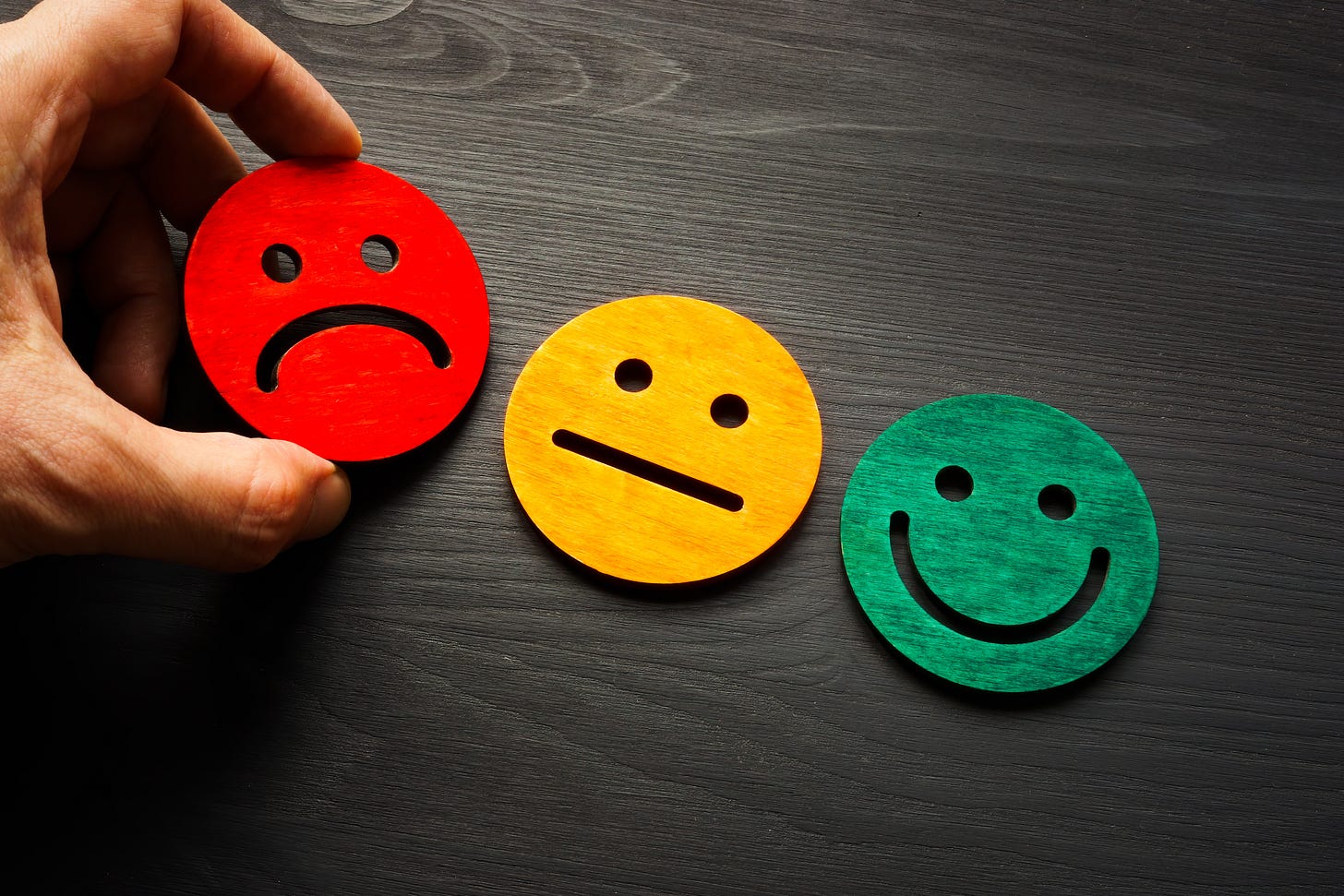When It Comes to Venting, Sharing Is Not Caring
5 ways to transform complaints into action.
It is no wonder that my patient felt drained after spending a weekend with an old friend who was known to be a relentless complainer. Grumbling about what’s bothering you may feel like a good idea but studies show it can do more harm than good—to both the grumbler and the person on the receiving end of the grumbling. As Arthur Brooks recently highlighted in the Atlantic:
The problem with all of this kvetching is that it can feel therapeutic—but it typically isn’t. Although complaining might offer temporary relief, it’s bad for your happiness in the long run. Polish researchers who in 2009 measured people’s mood before and after they complained consistently found a significant deterioration. Other scholars have shown that people who share negative emotions on social media—a very prevalent type of complaining today—experience lower levels of well-being.
Put simply, when it comes to venting, sharing is not caring. The more we complain, the unhappier the people around us become. Simply hearing another person gripe can negatively impact one’s mood and induce negative emotions. The “complaint contagion effect” was on full display recently when Elmo asked people on X how they were doing.
People unloaded on Elmo. With the exception of Chance the Rapper who responded, "Honestly, I'm in a really good place [right now]” most people did not hold back. Airing grievances can feel good in the moment but research on social media shows that when people’s complaints express anger, disgust, and sadness, their negativity spreads to those who are exposed to their venting. It is likely that the airing of grievances to Elmo amplified them.
Letting off steam not only backfires, it can actually fuel the fire. Psychology professor Jeffrey Lohr points out the downside of broadcasting our frustrations, “Venting anger is an emotional expression. It’s similar to emotional farting in a closed area. It sounds like a good idea, but it’s dead wrong.”
Research shows that girls who talk extensively about their problems with friends are more likely to become anxious and depressed. Co-ruminating takes an emotional toll, leading to a sense of helplessness and hopelessness.
As Lohr explains, “The problem with venting is that it’s a negative reinforcement process. Anger and hostility are specific emotions and expression of them begets more anger and hostility. What people fail to realize is that the anger would have dissipated had they not vented.”
Here are 5 strategies to help you complain more strategically. Think of them as GasX for Emotional Flatulence:
1. Count to 10 and back again
Anger dissipates more quickly when you focus on your breath.
2. Take a walk
Spending time outdoors helps put anger in perspective.
3. Pick your battles
Only complain when it serves a purpose. Stick to facts and be clear about what you want. Whatever you do, don’t make complaining your go-to mode of connecting with others.
4. Give it a name
Studies show that putting feelings into words reduces their impact but that doesn’t mean you have to say them out loud. Writing about it in a journal that you don’t share can help you better understand your feelings and feel more in control.
5. Move Forward
If you are complaining to someone about their behavior, rather than dwelling on a past grievance, focus on behavior you would like to see more of in the future. For instance, you could say, “moving forward, I hope we can communicate over the phone rather than sending hostile text messages back and forth.” The person on the receiving end will be less defensive and more motivated to make a change when they see the possibility of a fresh start.
Bottom Line: If you need to complain, please be solution oriented, not grievance fixated.
The Importance of Admitting Mistakes and the Right Way to Say Sorry
It may not be easy to own up to mistakes but studies show there are benefits to saying sorry. Thank you to TODAY for having me on to discuss tips on how to embrace being wrong, the right way to apologize, and more. Watch the full segment here.





This all seems really sound… and also, there’s another side to the Elmo thing, which is that hearing other people say “I’m not ok” reduces stigma and helps people feel less alone. Both can be true… and in fact I’m not sure the Elmo event was an example of venting so much as poking a hole in the everything-is-awesome social media vibe, which can feel oppressively positive to folks who are struggling. Just my thoughts. I love your work!
As a recovering chronic complainer, this is really helpful! Taking a walk is my go-to, especially at work.